I visited Kingston Lacey (located in Dorset, England) with friends last month. While there, I purchased National Trust membership, so you will be seeing more posts of National Trust properties in the coming months on this blog. Kingston Lacy is a mansion set in beautiful grounds and gardens with nature trails. The property has much history, and you can ask the volunteers for information as you're visiting. So, I came to learn that this house and nearby Corfe Castle (see my post about it from my visit last year: An Afternoon at Corfe Castle (Dorset, England)) were owned by the same family (Bankes), and they lived at Corfe Castle until it was destroyed in the Civil War. They were loyal to the crown, so their castle was destroyed, and this new home was built in the mid-1600s.
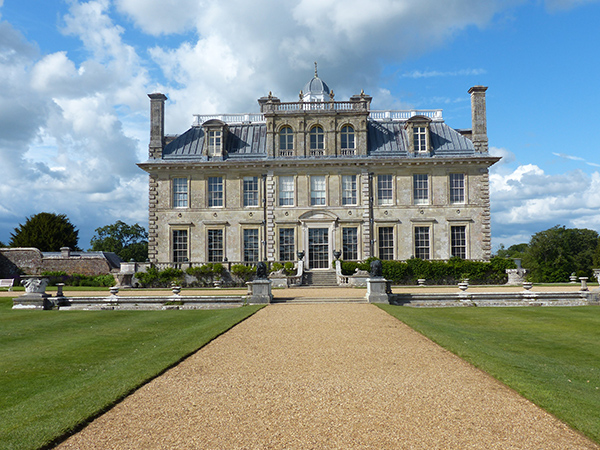
In 1982, the death of the owner in the Bankes family, prompted it and Corfe Castle to be sold to National Trust. By this time, the house was in a poor condition as it cost a lot to keep such a large house, and the remaining family did not wish to be burdened with it. Much of the items currently in the house were brought back from Asia and Africa by William John Bankes, who was an explorer and who had a taste for art. He also had a political office, and his downfall was that he was homosexual in a time when this was illegal, so he had to flee the country. There's so much more history about this place.
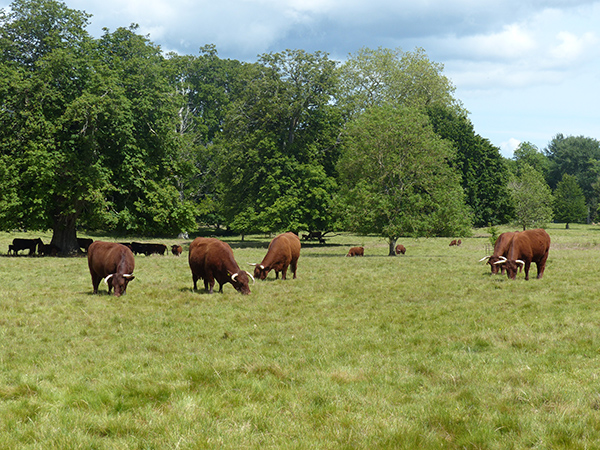
This is the main entrance to the house today. The entrance used to be on the other side, but the owners at the time wanted to make a grand staircase and entrance for a massive ball. So, the entrance was changed.
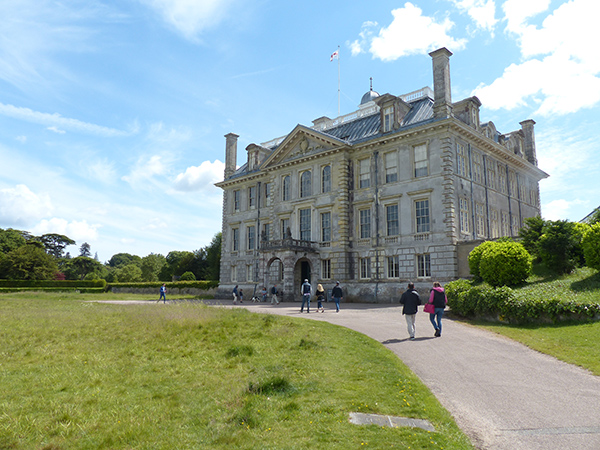
The below room is the Audit Room and contains what was modern technology for the day, which the owner was very keen to have and use as radio and television were coming into use. The small television can be seen next to the chair.
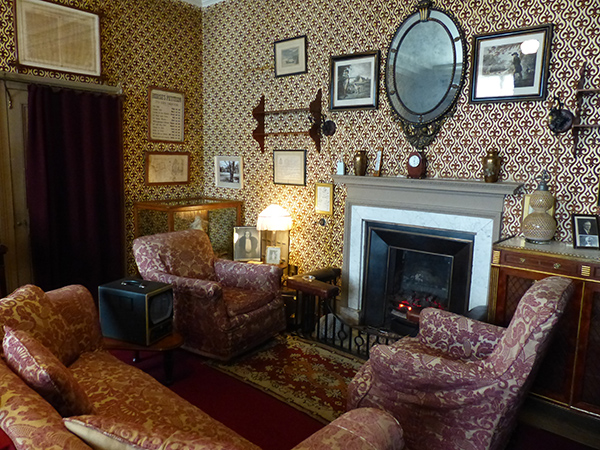
The gardens off the main staircase look beautifully-designed.
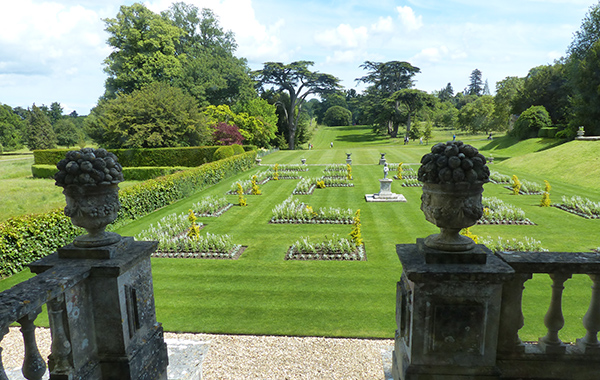
There is a library room.

There is also a room dedicated to the women who lived and occupied their time here.
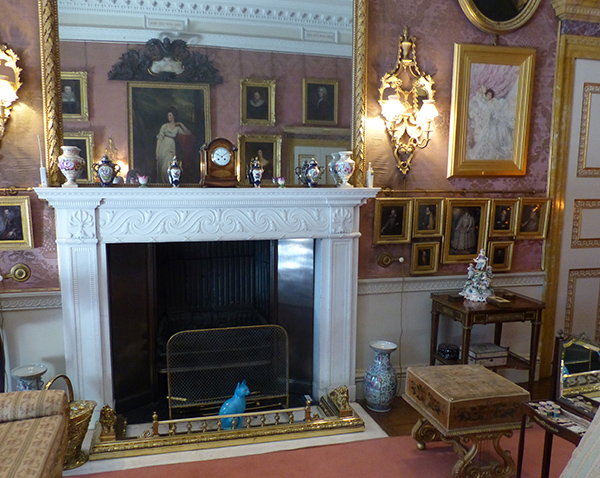
This is the great hall or banquet room, which leads to another beautiful room.
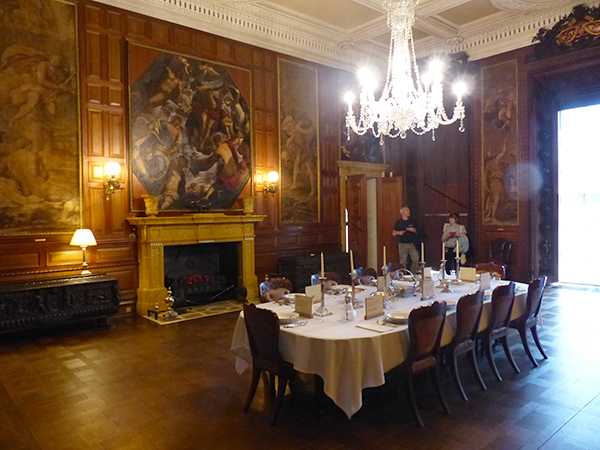
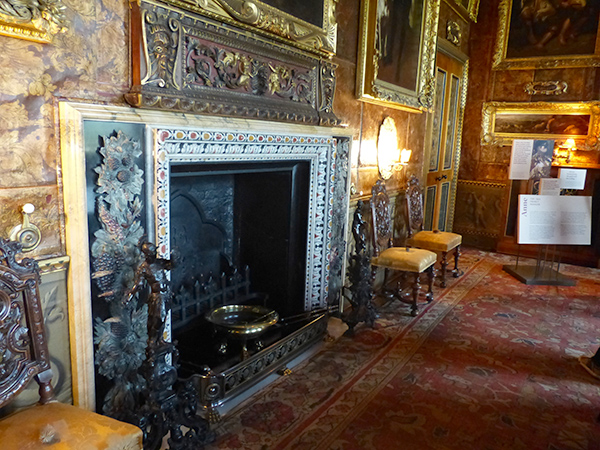
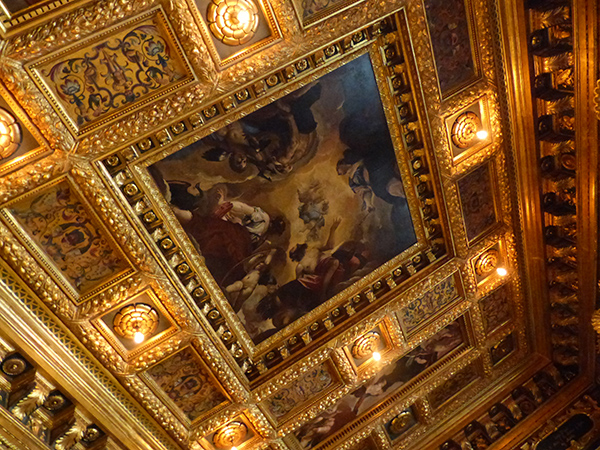
This is one of the bedrooms. The bed was commissioned by William John Bankes to an Italian craftsman. Bankes died before the bed was completed, leaving the artist out of pocket until one of the ancestors finally paid for the work. Behind the room is a bath room.
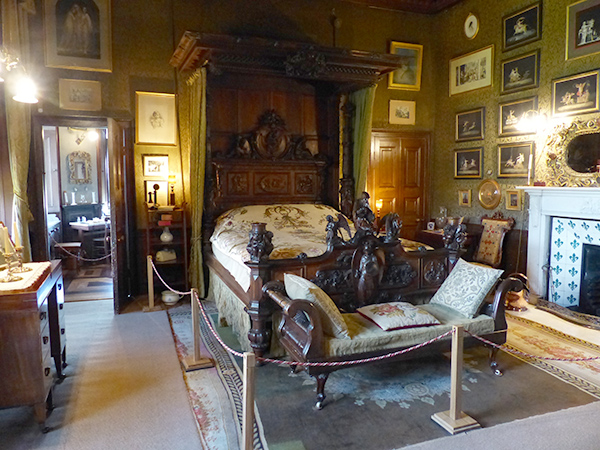
Another bedroom is a more feminine bedroom.
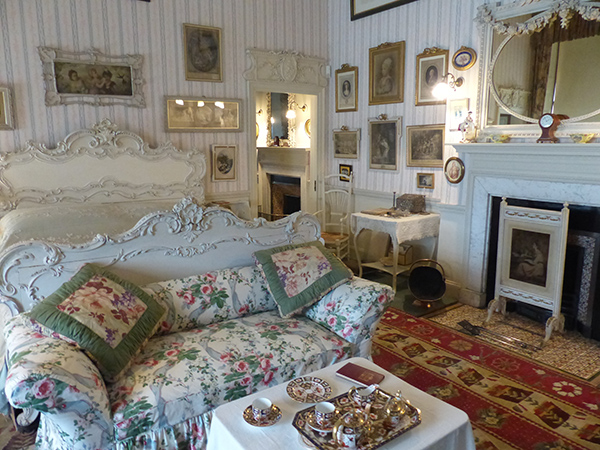
And here is the third bedroom.
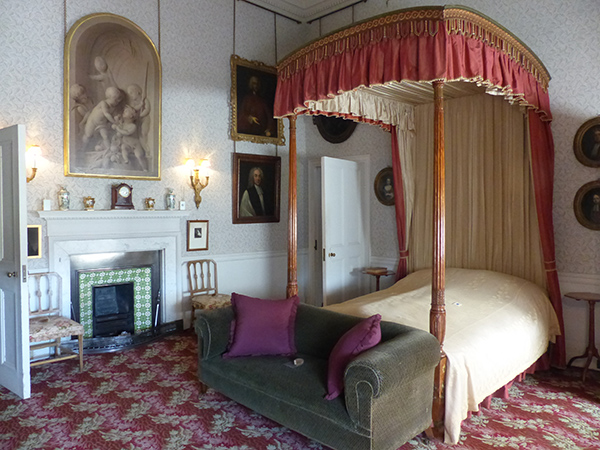
On the top (third) floor, the children had use of the house and had bedrooms designed like circus tents. Apparently this came from Josephine, the wife of Napoleon, who believed her husband wanted to mimic the campaign tents. It came into fashion then but was not in fashion for long, and this is one of the only surviving examples. Both of the childrens' rooms are designed like a mock circus tent.
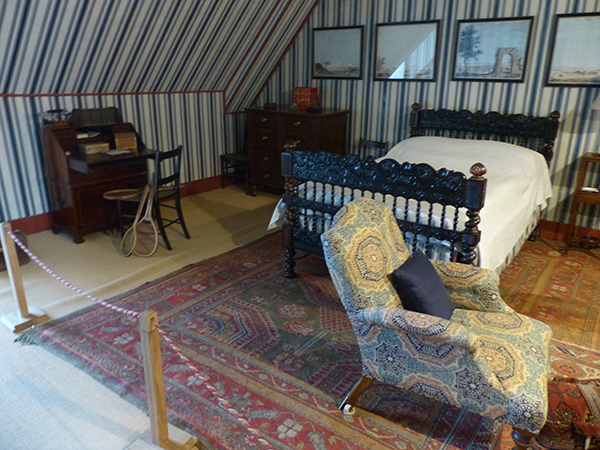
On the ground floor, we saw some of the servant quarters, including the service bells. You can ring these, but they are no longer connected to the rest of the house.
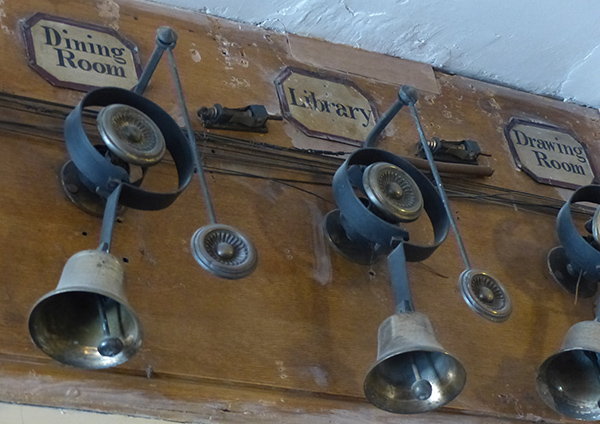
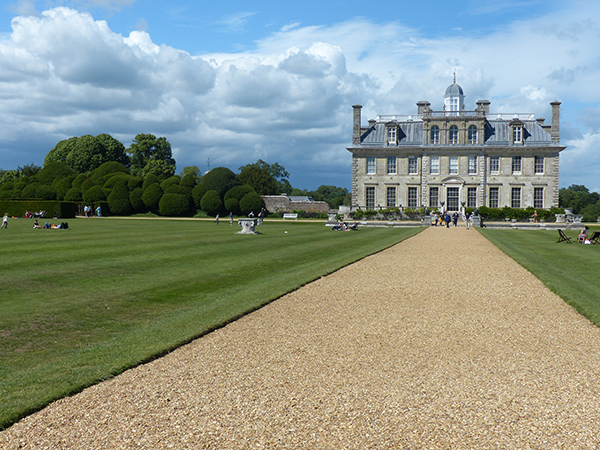
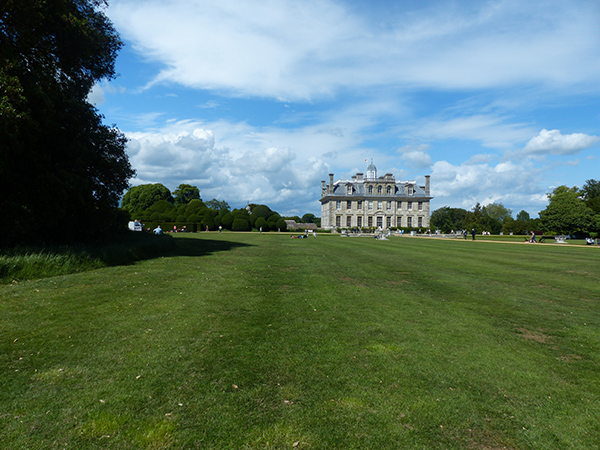
Also downstairs and near this room is a dedication of Egyptian artefacts that William John Bankes brought back. These include a wide variety of objects, but the largest objects are in the grounds. Obelisks and a stone sarcophagus are located in the grounds.
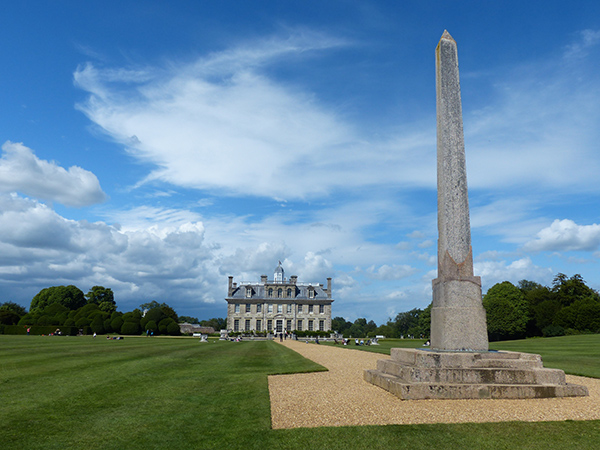
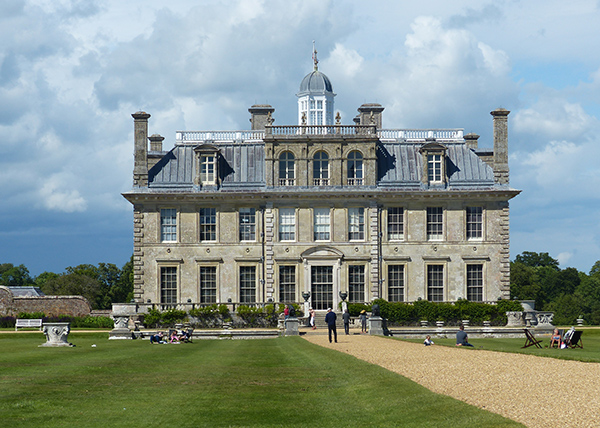
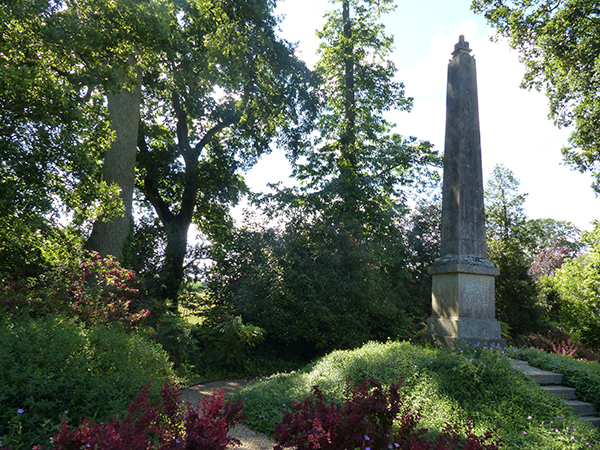
On the other end of the trail through the grounds, we stopped to have cake and a drink.
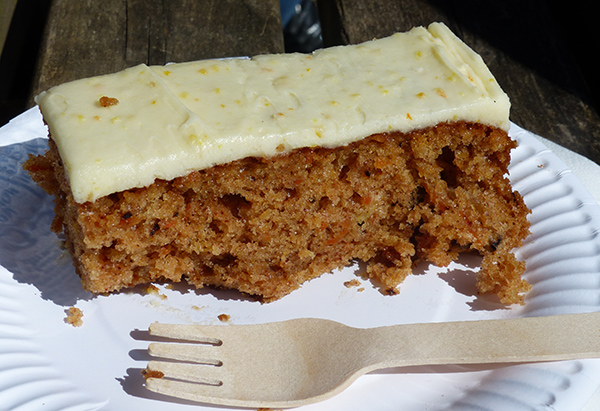
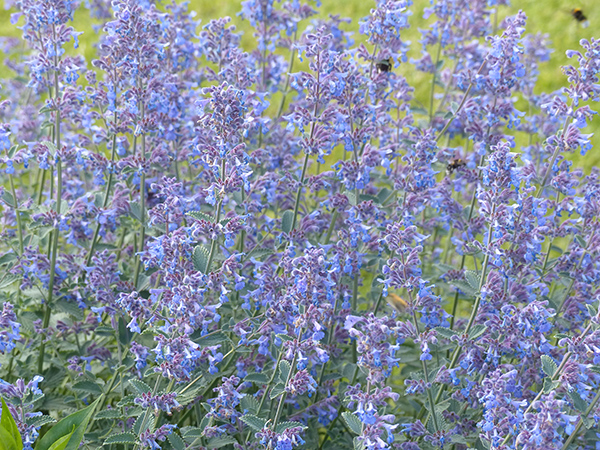
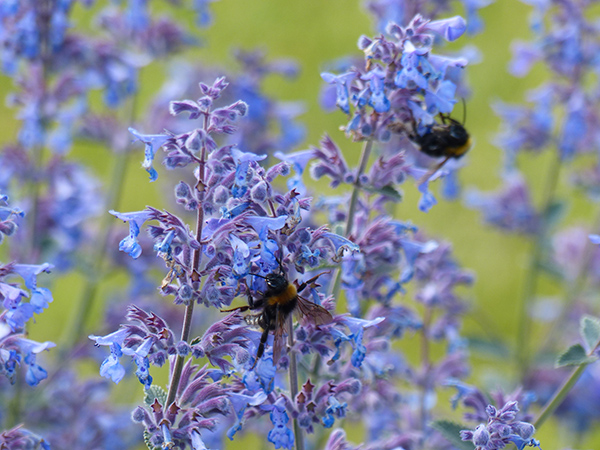
The grounds nearest the castle were the best-kept with beautiful flowers and gardens.
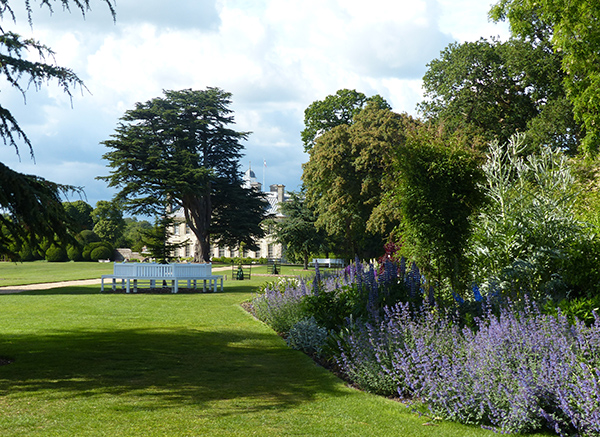
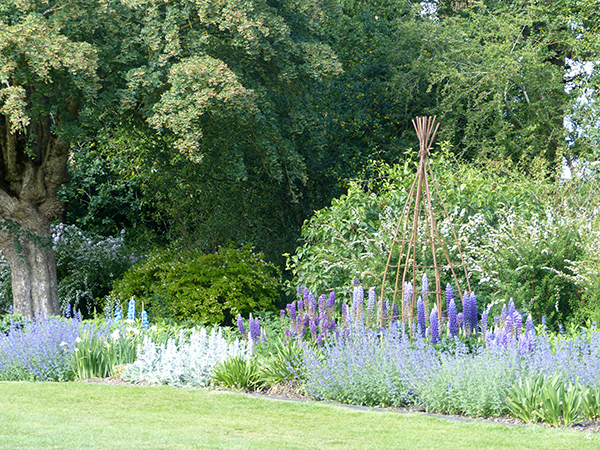
Keep checking back for future visits of gardens, castles, and houses.
Leave a comment